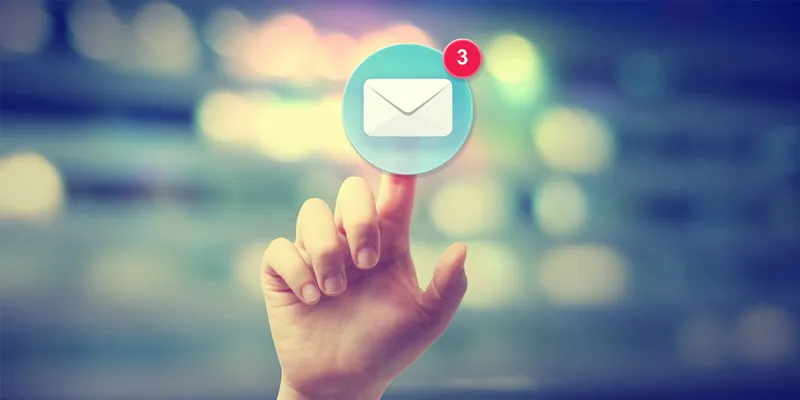5 things you can do now to beat your email addiction
Most of us have a love-hate relationship with email. On some days, it may seem like a never-ending list of things to do with task after task popping up the moment you finish with one. On others, it might be something you wait for, excitedly, craving good news or even just acknowledgement. However, if you find yourself always glued to your phone, refreshing your email inbox repeatedly, chances are you are addicted to it. Studies have found that checking emails frequently can have a negative time impact on your work, making a typical task take three times more time to be completed. Although it might sound silly, such an addiction can have serious implications on our mental, physical and emotional health. So how, then, do we deal with it?

Why are we addicted?
To manage and get rid of email addiction effectively, we need to understand why we are addicted to it in the first place. There may be many reasons for this. Research has found that dopamine induces ‘seeking’ behaviour in humans and it makes us curious. It also increases our brain activity in anticipation of a reward. When we repeatedly feel like checking our email, understand that it is dopamine at play. It makes the mind and body crave a reward in the form of a positive news or message.
Dr Tom Stafford, lecturer at the University of Sheffield and co-author of the book Mind Hacks, believe that emails and gambling slot machines work on the brain in similar ways. He calls this “variable interval reinforcement schedule”. This is one of best ways to train people in string habits, he says. “Rather than rewarding an action every time it is performed, you reward it sometimes, but not in a predictable way,” says Tom. With email, too, sometimes there is nothing interesting and at others there’s some good news waiting and there’s your occasional reward. This sets the stage for this reward-seeking behaviour to turn into a habit first and then an addiction.
How do we overcome the addiction?
The good news is that it is not all that difficult to deal with an email addiction. So here are some things you could try right away:
Set rules for yourself: Decide how many times a day you will check your mail. Three times a day seems a good number to start off with. Next, set a time limit on how long you spend on checking email. If you think you cannot control yourself or that you cannot keep track of time, set a timer or use one of the many time-tracking tools available online today like Toggl or Rescue Time. Finally, organise your inbox according to the urgency of response. Make folders to separate emails that need an immediate response from the ones that can be responded to a day later and that need some work before it can be responded to. Archive or delete (if you are sure you will not need it at all) the rest.
Do not initiate small talk over email: Now, with so many instant messages apps available out there, email is not the tool to initiate or have small talk on. From WhatsApp to Facebook messenger and Slack, there are many personal and professional messaging services. Cut the build-up of single word or single-line conversations on email and take it to the appropriate chat window. Similarly, unsubscribe from unwanted websites and blogs you may have followed.
Bury your email icons: Try and trick your brain into associating email checking to something that cannot be easily achieved. For instance, if your email icon is right in the opening screen of your phone, the tendency to peep into it only increases. So bury your icons somewhere within the large phone menu. Also, don’t keep your phone next to you when you sleep as this might make you want to reach out for your email right after you snooze your alarm.
Remove all email related notifications on all devices: The main trigger for us to check our emails frequently is the lure of the notification tone. Once you disable notifications from your email app, you will be oblivious about new emails or messages. Also, use a plugin that helps you type out an email without really having to get into your inbox to do so. This keeps distraction at bay.
Practice email-free weekends: Every day at work and at home, we keep looking at email after email popping up on our phones. With such extreme connectivity, it becomes almost impossible to resist taking your work home. But this is not a healthy habit. Practise email-free weekends when you are not allowed to check emails. This will help you manage your addiction and also strike a good work-life balance.
Breaking a habit is not easy, so be considerate with yourself. Do not expect to see a complete change the very next day. Undoing a habit takes so much more time than you took picking it up. So reward yourself for small achievements as you make progress detoxing yourself from this addiction. One important thing to remember to beat the addiction is to stop sending too many emails. Pick up the phone or drop in a text if that is what is required at the moment. Invest the time you saved from not checking emails into something more creative and productive.







